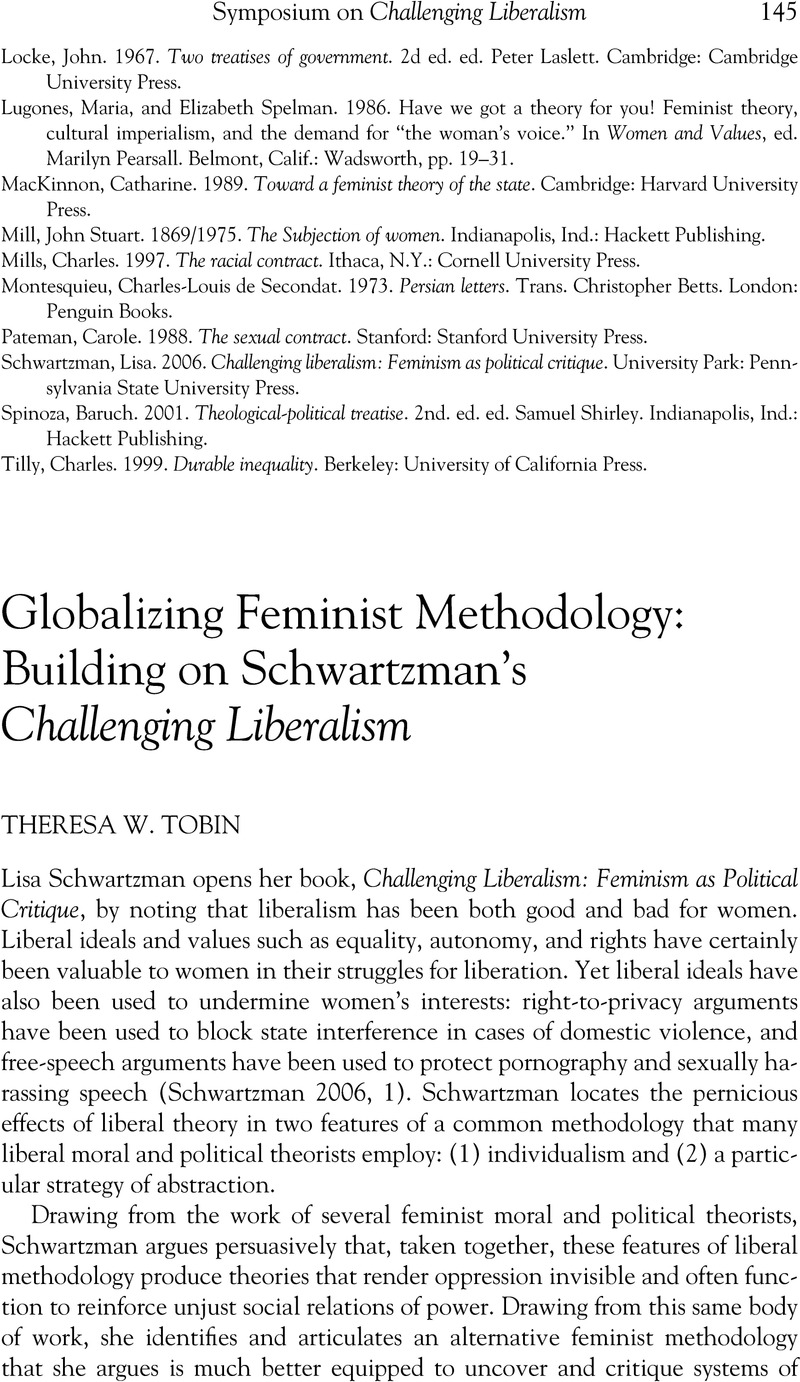Crossref Citations
This article has been cited by the following publications. This list is generated based on data provided by Crossref.
Schwartzman, Lisa H.
2009.
Non-Ideal Theorizing, Social Groups, and Knowledge of Oppression: A Response.
Hypatia,
Vol. 24,
Issue. 4,
p.
177.
Tobin, Theresa W.
and
Jaggar, Alison M.
2013.
Naturalizing Moral Justification: Rethinking the Method of Moral Epistemology.
Metaphilosophy,
Vol. 44,
Issue. 4,
p.
409.
Kleist, Chad
2013.
A Discourse Ethics Defense of Nussbaum's Capabilities Theory.
Journal of Human Development and Capabilities,
Vol. 14,
Issue. 2,
p.
266.



